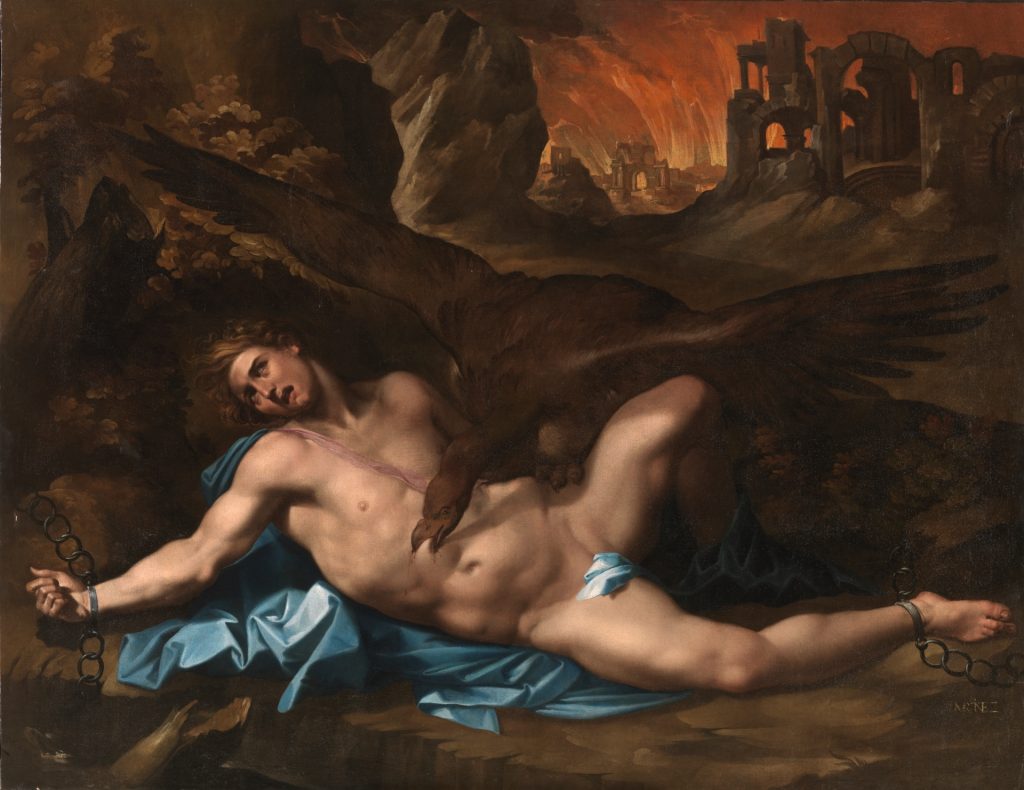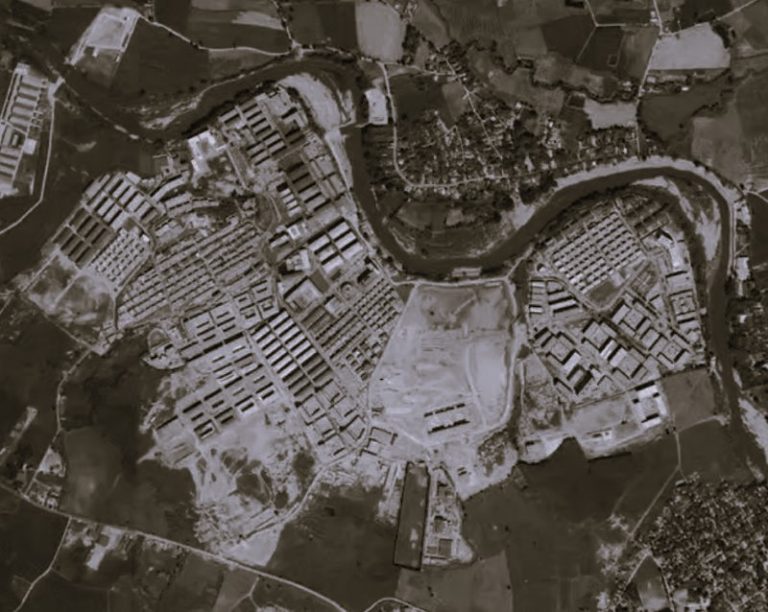

By Dr. Niki Papavramidou
Assistant Professor of the History of Medicine
Aristotle University of Thessaloniki
Abstract
The accurate knowledge of surgical anatomy, the amelioration of post-operative processes and the continuously increasing experience of surgeons nowadays allow the performance of severe hepatic operations (e.g., wide liver resections, liver transplantations, etc.). The success of these operations is even more assisted by the great regenerative ability of the liver. Greek mythology, being an important source of information on the beliefs, habits, and phenomena observed during antiquity, reveals that hepatic regeneration was well known to ancient Greeks and this natural ability was established in two tales: the tale of Prometheus and the tale of the Giant Tityus. The main concept of both tales, being the destruction and reconstitution of the liver, is almost the same. Both of the condemned were immortal and their liver regenerated in a night, providing thus, food for the eagles and eternal pain for the sufferers. In conclusion, the tales show that the regenerative ability of the liver was well known from early years and that the trust shown by the Gods in this ability, to cause eternal suffering is on a par with the trust shown by the modern surgeons in it, to assure a successful hepatic operation.
Introduction

The capacity of the liver to fully restore itself after significant hepatic tissue loss either from partial hepatectomy or acute liver injury has been long recognized[1].
The existence of hepatic stem or progenitor cells has been controversial for decades, though it has been presumed that if such cells existed, they would lie within the liver. There is now consensus, however, that not only do facultative hepatic stem cells exist within the liver, but also that cells from extra-hepatic sites, in particular the bone marrow, can contribute to hepatocyte and cholangiocyte regeneration[2]. Despite confidence that engraftment of marrow cells in the liver occurs, the mechanical details of this process remain poorly understood[3].
Greek mythology mentions two cases of hepatic regeneration: the myth of Prometheus and the myth of the Giant Tityus. In both myths, the liver was totally destroyed during the day and fully restored during the night.
Myth of Prometheus

According to Hesiod’s Theogony[4], Prometheus was a Titan, an order of divinities existing before Zeus and thus called the “old Gods.” Zeus himself had gained his power with the help and advice of Prometheus. Prometheus, whose name means “forethought,” had qualities that made him a master craftsman and creator of mankind. Proud of his creation, he decided to make man perfect, a task that required mankind’s possession of fire.
According to legend, after the creation of mankind, the mortals and immortals were gathered for a feast. Prometheus tricked Zeus into eating the less desirable part of the meal, giving the best part to man. In anger, Zeus revoked man’s privilege of using fire. Prometheus, ignoring Zeus, stole the fire and gave it back to man. When Zeus discovered the theft, he ordered Hephaestus to seize Prometheus and chain him on a rock on Mount Caucasus. Zeus then sent an eagle to eat his liver. The bird would eat the liver every day and the organ would grow back every night. This punishment lasted for thirteen generations, ending only when Hercules killed the eagle with his arrows.
Myth of the Giant Tityus

The Giant Tityus was the son of Zeus and Elara. It was said that while he was a fetus, his extreme growth caused the death of his mother and instead, Earth gave birth to him with the aid of Zeus. When Tityus grew up, he attacked Leto, mother of Apollo and Artemis, while she headed to Delphi, and violently abducted her. According to Pausanias, Leto’s daughter Artemis or Leto’s son Apollo sent the Giant Tityus to Hades with their arrows[5].
Homer in the Odyssey describes the Giant’s bearing in Hades: he lay wounded on the ground, his body being 900 feet long. Two vultures feasted every day on his liver which then grew back during the night[6].
Discussion
In Theogony, Prometheus’ liver is immortal not only because Prometheus himself is immortal, but also because the liver is considered the seat of the soul and intelligence. This connection enhances the suffering of both Prometheus and Tityus which is primarily psychic. The pain is aggravated by the temporal dimension and daily repetition of the punishment.
The fact that the liver is the organ attacked in both cases is in all cases bizarre, though the practice of inspection of the viscera could have been the source of information about the abilities of the organ. Nevertheless, even this superficial knowledge in such an early period is admirable. If in ancient mythology the regenerative power of the liver appears as a means of additional punishment, in modern medicine this power is a gift promoting the patient’s chances of survival.
Notes
- Fausto N, Campbell JS, Riehle KJ. Liver regeneration. Hepatology. 2006;43:S45-S53
- Dorrell C, Grompe M. Liver repair by intra- and extrahepatic progenitors. Stem Cell Rev. 2005;1:61-64
- Michalopoulos GK, DeFrances MC. Liver regeneration. Science. 1997;276:60-66
- Hesiod, West ML. Theogony, Works and days. New York: Oxford University Press 1999
- Pausanias, Wycherley RE, editor. Description of Greece, Illustrations and index. Boston: Harvard University Press 1995
- Homer, Shewring W. Odyssey. New York: Oxford University Press 1998
Originally published by the World Journal of Meta-Analysis, 7:3 (03.31.2019, 77-79), under the terms of a Creative Commons Attribution-NonCommercial 4.0 International license.







